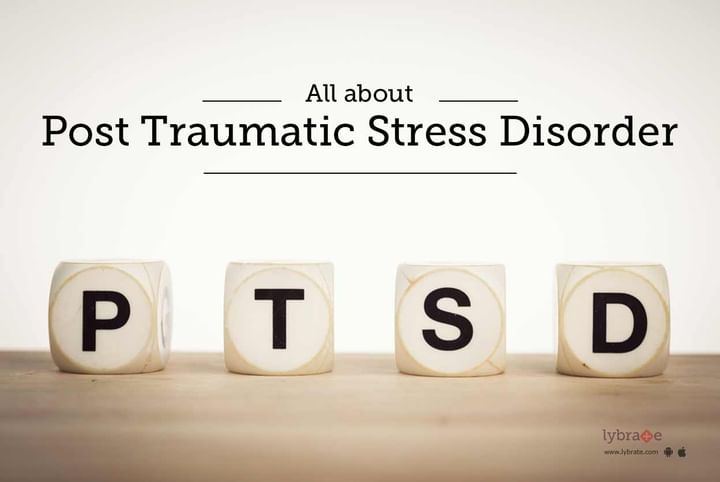Get the App
For Doctors
Login/Sign-up
Last Updated: Jan 10, 2023
BookMark
Report
All About Post Traumatic Stress Disorder
An event or an accident that leaves us overwhelmed can lead to Post Traumatic Stress Disorder, also known as PTSD. A particularly stressful situation or event that has created terror or been overly dramatic or dangerous can lead to stress and anxiety long after the individual has physically come out of the situation. This kind of a traumatic condition is usually what characterises PTSD. This condition is something that is persistent, and can linger on for a long time, calling for medical supervision and care. Here's a list of things you need to know about PTSD.
- Duration: Post Traumatic Stress Disorder usually lasts up to six months. Yet, there are cases where it lingers on and requires treatment for some particular types of symptoms or behavioural changes. Usually, the patient's behaviour is a result of one or more of the symptoms discussed below.
- Re-experiencing Symptoms: These symptoms include flashbacks and life like re-imagination in the form of dreams and nightmares. In many cases, the patient may remember and re-experience the entire scene or series of events that have led to the trauma in the first place. This can be triggered by a memory or association with words, events and other such things that have to do with the memory of the traumatic episode.
- Avoidance Symptoms: A traumatised patient may go out of his or her way to avoid things that are remotely close to the traumatic incident. They may fear a reoccurrence or a reminder of the event and may avoid addressing the trauma altogether. Patients suffering from this symptom may have created a mental block, and may not be able to remember the exact details of the event. They may also feel emotions like fear, guilt, depression and even worry, over the past incident which led to the trauma in the first place.
- Arousal Symptoms: Arousal or reactivity symptoms may trigger the same reactions that the person showed during the traumatic experience. These may include being on edge constantly in anticipation of a reoccurrence, or even getting startled by the slightest thing since the mind is already occupied with thoughts of the event, constantly. Anger and emotional outbursts may also be caused due to these symptoms.
- Mood Symptoms: Mood swings are the most common outcome of these symptoms. The patient may experience a complete lack of enthusiasm and drive to indulge in activities like hobbies and socialising. Also, the patient may end up harbouring feelings of negativity towards family, friends and strangers, besides going through phases of guilt and self blame for the occurrence of the traumatic event.
PTSD can be a debilitating disorder in the emotional sense, and should be treated by a psychiatrist in case it lingers on for more than six months.



+1.svg)
